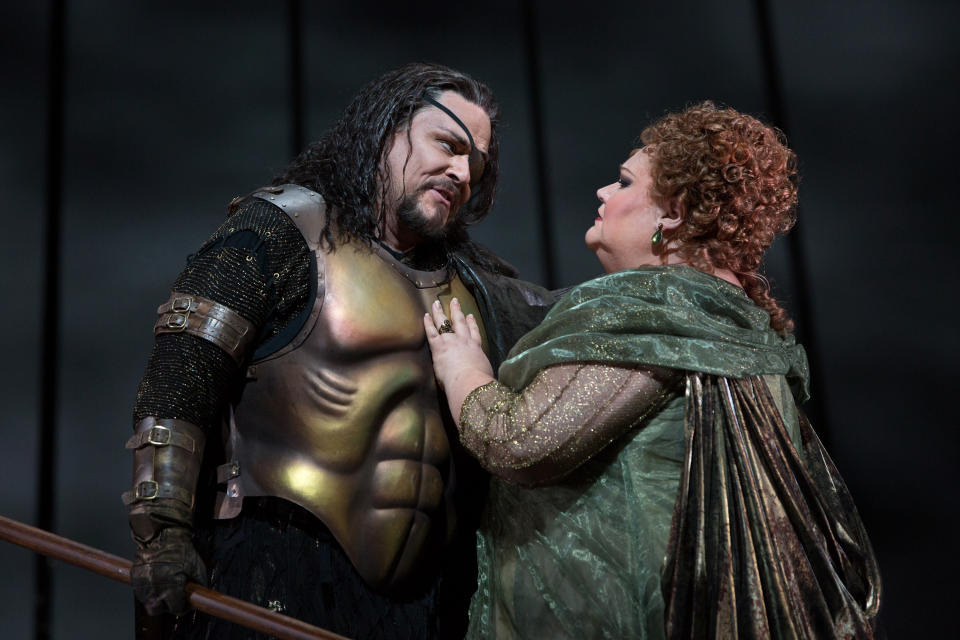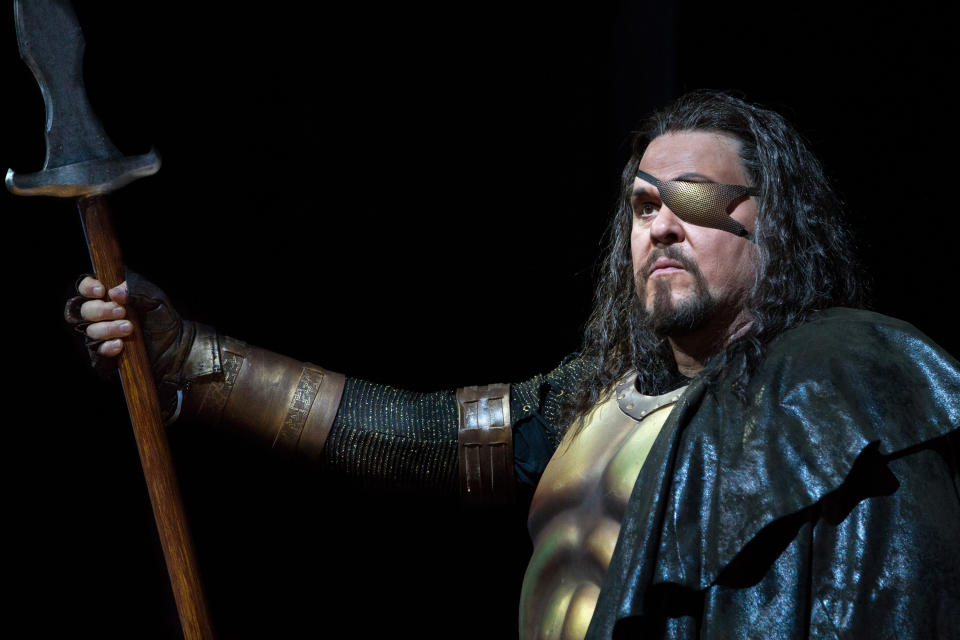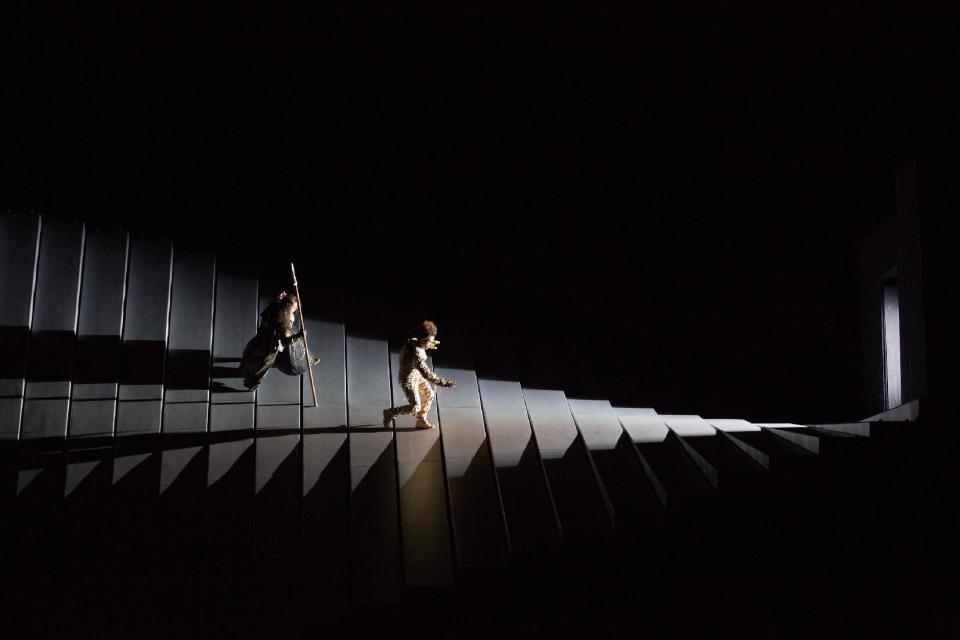Review: Problems again hamper Lepage 'Ring' at Met
NEW YORK (AP) — It's not just the golden ring that carries a curse. The Metropolitan Opera's production of Wagner's epic seems to as well.
On Saturday afternoon, the company launched the first of this season's three complete "Ring" cycles with a performance of the opening installment, "Das Rheingold." And the high-tech staging by Robert Lepage malfunctioned once again.
This time the problem apparently wasn't a mechanical breakdown of the 45-ton set with its 24 movable metal planks. Rather, the Met said in a statement that a "track and trolley system" that is supposed to guide two stunt doubles failed to operate, and as a result the order was given to freeze the planks in place for several minutes.
The glitch ruined one of Lepage's more breathtaking effects. At the end of Scene 2, Wotan and his henchman Loge descend from a mountaintop to Nibelheim, the subterranean lair where Alberich hoards the gold he has stolen from the Rhinemaidens. During a musical interlude, the planks twist themselves into a steeply sloping staircase, and acrobats dressed to resemble the singers gingerly make their descent.
Instead, the set abruptly stopped moving with several planks stuck in mid-position, and a stagehand emerged to manually pull them down in full view of the audience. When Scene 3 began, the underground cavern was nowhere to be seen, and bass-baritone Eric Owens as Alberich had to step out onto a bare stage to begin singing, along with tenor Gerhard Siegel, as his brother Mime.
It's to their credit, and conductor Fabio Luisi's, that the singers and orchestra never missed a beat during what must have been some tense moments. Eventually the set twisted itself into shape, but the acrobats also failed to appear during the transition back to Scene 4 on the mountain.
None of this would matter quite so much, except that Lepage's production is all about spectacle, sadly at the expense of much attention to dramatic interactions among the characters, let alone any overarching interpretive concept.
Yet the elaborate machinery has been plagued with problems, literally from Day One. On opening night of "Das Rheingold" in 2010, the rainbow bridge that should provide the gods passage into their new home of Valhalla failed to elevate, forcing the singers to walk off to the wings while the triumphant brass finale played to an empty stage. During the premiere of "Die Walkuere," soprano Deborah Voigt as Bruennhilde slipped and fell during her entrance onto the set. And the HD telecast of that opera last May was delayed by 45 minutes because of a problem with the system that displays projected images onto the planks.
The main newcomer to the production in Saturday's cast was baritone Mark Delavan, singing his first Wotan in the house. He was in fine voice and moved confidently in the narrow confines of Lepage's staging, but he was perhaps inevitably overshadowed by the prodigious outpourings of mezzo-soprano Stephanie Blythe as his wife, Fricka. Owens, despite some strain on his top notes, was again a fierce, commanding Alberich, and Stefan Margita, with his pungent tenor sound, was an incisive Loge, though he has taken to shameless mugging. Other newcomers included mezzo Meredith Arwady as a baleful Erda and Richard Cox, a fresh-sounding tenor in the role of Froh.
Luisi and the orchestra performed the score with elegance and precision.
___
Online:
http://www.metoperafamily.org/metopera/



